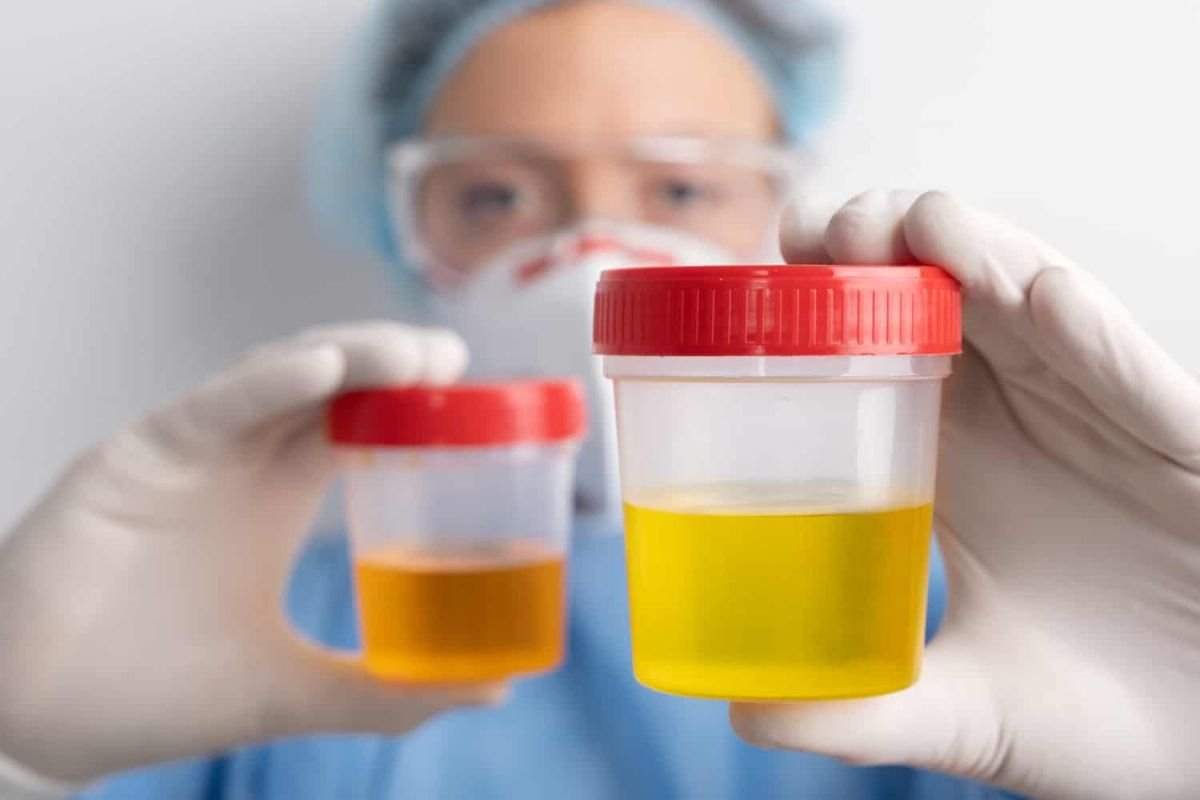Magnesium is a mineral that plays a vital role in normal bone structure in the body. It supports muscle and nerve function to regulate blood pressure. People get magnesium from their food but sometimes they need magnesium supplements if their levels are too low in the body.
However, one question that often arises is whether “Does Magnesium Make Your Pee Smell? “. The answer is yes, it can.
In this article, we’ll dive into the link between magnesium and urine odor, as well as address common factors that contribute to urine odor and provide guidance on managing any potential changes.
What is Magnesium?
Magnesium is necessary for proper growth and maintenance of bones. Many people underestimate the importance of magnesium, not realizing that it is involved in over 300 biochemical reactions in the body.
Magnesium also helps our body in:
- regulation of muscle and nerve function
- conversion of food into energy
- synthesis of proteins
- gene maintenance and DNA repair
- muscle movements and contractions
- optimal nervous system regulation
- neutralizing stomach acid and aids in digestion
- bone health and structure
- combating inflammation
- management of conditions such as osteoporosis, high blood pressure, and diabetes
Although it’s mostly obtained from food, sometimes you may need extra supplements to maintain the right balance.
Connection between Magnesium and urine odor
Magnesium supplements are commonly associated with a slight change in urine odor.
The main cause is that excess magnesium that the body doesn’t need is expelled through the urine. As a result, the presence of higher quantities of this mineral can change the typical smell of urine.
However, if the change in odor is accompanied by other symptoms like pain, changes in urine color, or frequency of urination. Then, it is advisable to consult your doctor as these could indicate a more serious underlying condition.
Does Magnesium really make your pee smell?

Yes, Magnesium can actually affect the smell of your pee. This happens because your body gets rid of extra Magnesium through urine, which can change its usual smell.
But don’t worry, this is usually harmless and goes away once your body gets used to the supplement or the dosage is adjusted.
As we mentioned earlier, if you experience any other symptoms like persistent pain, changes in urine color, or frequent urge to urinate, it’s important to consult a doctor as it could indicate a more serious condition.
Keep in mind that a change in pee smell can seem alarming. But in most cases, it’s harmless and disappears once the body adjusts to the supplement or the dosage is reduced.
Related: Magnesium Stearate and Hair Loss: A Simple Guide
Factors Affecting Urine Odor
Asparagus is probably the most common reason for foul-smelling pee. The odor of your pee is caused by the breakdown of asparagusic acid.
Genes have a big role in determining your ability to detect these sulfur byproducts. If you’re unable to do so, it’s known as asparagus anosmia.
Several other factors contribute to the odor of urine, like hydration levels, diet, medications, and certain medical conditions. While magnesium may not have a direct impact on urine odor, it’s important to consider these other variables:
Dehydration
The concentration of your urine can affect its smell. Drinks can help to dilute your urine and make it less concentrated. If you’re dehydrated, your urine may become more concentrated and have a stronger scent.
That doesn’t mean you’re not healthy. However not drinking enough fluids does increase the chances of getting stones in kidney and urinary tract infections.
That’s why it’s important to drink an adequate amount of water which can help to dilute the urine and reduce any noticeable odor.
Diet
The food we consume is also the main cause of our smelly urine. Certain foods, such as asparagus, onions, garlic, and certain types of seafood, have compounds that can result in a distinctive urine odor.
These foods contain sulfur compounds that are moving out through urine, hence the distinct smell. Moreover, consuming large quantities of coffee and alcohol can also alter the usual smell of urine, making it stronger.
It’s essential to maintain your diet and be aware of how specific foods can impact your body’s functions, including urine odor.
Overdose of Vitamins

Your body expels out the nutrients through peeing that you don’t need. At times, people consume excessive amounts of vitamins deliberately or unknowingly. Since the body cannot store water-soluble vitamins like Vitamin-C and Vitamin-B complex, any excess is washed out through urine.
These include vitamin B6 which gives your pee a strong odor. And consuming too much vitamin B1 can make your urine smell like fish. Taking B vitamins can also give your pee a bright greenish-yellow color. Consult with your doctor to figure out which vitamin doses are best for you.
Medications
Medications can also be a main factor that affects urine odor. Certain medicines like Sulfa drugs can make your pee smell a bit funky. This includes sulfonamide antibiotics, which are often prescribed to treat UTIs and other infections.
Antibiotics, dietary supplements, and some chemotherapy drugs could have this effect. Some medicines that are used for diabetes and rheumatoid arthritis can also change the way your pee smells.
The body tries to expel any excess substances through urination, leading to a change in the usual smell of urine.
However, this should normalize once the medication course is completed.
If the odor continues, it is advisable to talk with a doctor to make sure what medicine or condition else is causing the odor.
How do I manage my pee smell?
If you’ve noticed a change in the way your urine smells and think it might be because of your magnesium intake, don’t worry! There are things you can do to manage your pee smell:
- Water is the most important factor in reducing the smell of your urine. Drinking enough water during the day helps maintain proper hydration levels and dilutes the substances that are responsible for strong-smelling urine.
- Eating a proper diet that includes fruits, vegetables, whole grains, and lean proteins. This can help promote overall urinary health.
- If you believe certain medications are causing unusual urine odour, talk to your doctor to discuss alternative options or potential solutions.
- Keep track of any changes in urine odour along with other accompanying symptoms. This information will be valuable when discussing concerns with your healthcare provider.
Related: Does Mountain Dew make your pee pee smaller?
Conclusion
Magnesium does not directly impact urine odor. There are various factors that can contribute to changes in the smell of your urine. If you have concerns about the smell of your urine or any other related symptoms, it’s always best to consult your doctor for proper guidance and treatment. Remember that maintaining overall hydration and a balanced diet are essential for promoting urinary health.
FAQ
Is it normal to have a urine odor after taking magnesium supplements?
While magnesium itself does not cause urine odor, everyone’s body chemistry is unique. If you experience changes in urine odor after taking magnesium supplements and are concerned about it, consult with your doctor for personalized advice.
Can Magnesium cause body odor?
Magnesium is not known to directly cause body odor. Body odor is typically linked with factors such as personal hygiene practices, sweat production, and bacterial activity on the skin.
Can too much Magnesium cause urinary problems?
Excessive magnesium intake can lead to diarrhea, which may cause changes in bowel movements. However, urinary problems are not usually associated with magnesium supplementation.
Does Magnesium have any other side effects?
Magnesium is usually safe when taken as directed by a doctor. However, some people may experience mild side effects such as diarrhea or stomach discomfort. It’s advisable to follow the recommended dosage and not try to self-medicate at home.

Dr. Usman is a medical content reviewer with 12+ years of experience in healthcare research and patient education. He specializes in evidence-based health information, medications, and chronic health topics. His work is based on trusted medical sources and current clinical guidelines to ensure accuracy, transparency, and reliability. Content reviewed by Dr. Usman is for educational purposes and does not replace professional medical advice.
